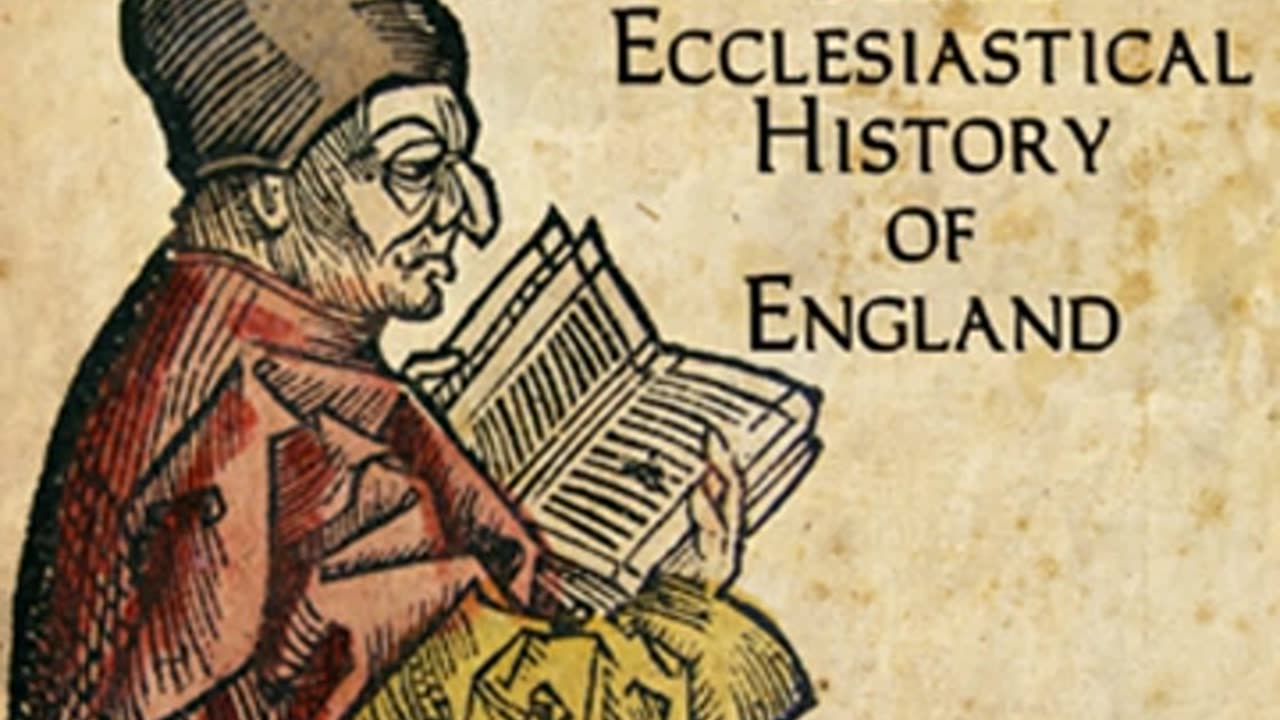Premium Only Content

"Ecclesiastical History of England by THE VENERABLE BEDE (735AD) 1/2 Audiobook"
Chapters:
00:00:00 - 01 - 01 - Editor's Preface & Introduction
00:32:34 - 02 - 02 - Life of Bede & Preface
01:04:45 - 03 - 03 - Book I, Chapters 1-8
01:34:01 - 04 - 04 - Book I, Chapters 9-17
02:02:43 - 05 - 05 - Book I, Chapters 18-26
02:27:20 - 06 - 06 - Book I, Chapter 27
02:59:28 - 07 - 07 - Book I, Chapters 28-34
03:18:13 - 08 - 08 - Book II, Chapters 1-3
03:46:29 - 09 - 09 - Book II, Chapters 4-9
04:14:39 - 10 - 10 - Book II, Chapters 10-13
04:43:04 - 11 - 11 - Book II, Chapters 14-20
05:10:31 - 12 - 12 - Book III, Chapters 1-7
05:36:13 - 13 - 13 - Book III, Chapters 8-14
06:02:02 - 14 - 14 - Book III, Chapters 15-21
06:30:23 - 15 - 15 - Book III, Chapters 22-24
06:49:14 - 16 - 16 - Book III, Chapters 25-26
Bede's Ecclesiastical History of England is a work in Latin by Bede on the history of the Christian Churches in England, and of England generally; its main focus is on the conflict between Roman and Celtic Christianity. It is considered to be one of the most important original references on Anglo-Saxon history. It is believed to have been completed in 731, when Bede was approximately 59 years old. Divided into five books, it covers the history of England, ecclesiastical and political, from the time of Julius Caesar to the date of its completion (731). The History of the English Church and People has a clear polemical and didactic purpose. Bede sets out, not just to tell the story of the English, but to advance his views on politics and religion. In political terms he is a partisan of his native Northumbria, amplifying its role in English history over and above that of Mercia, its great southern rival. While Bede is loyal to Northumbria, he shows an even greater attachment to the Irish and the Irish Celtic missionaries, whom he considers to be far more effective and dedicated than their rather complacent English counterparts. His final preoccupation is over the precise date of Easter, which he writes about at length. It is here, and only here, that he ventures some criticism of St Cuthbert and the Irish missionaries, who celebrated the event, according to Bede, at the wrong time. In the end he is pleased to note that the Irish Church was saved from error by accepting the correct date for Easter.
-
 5:02:46
5:02:46
MoFio23!
6 hours agoNintendo Switch It UP Saturdays with The Fellas: LIVE - Episode #1
27K7 -
 4:26:49
4:26:49
BLoobsGaming
5 hours agoCan I get an Enhance Crystal Weapon Seed please!? MORE Corrupted Gauntlet
56.9K5 -
 LIVE
LIVE
BSparksGaming
16 hours agoDynamic Duo! Marvel Rivals w/ Chili XDD
886 watching -
 7:00:42
7:00:42
NellieBean
7 hours ago🔴 LIVE - trying some COD maybe Pals later
28.4K -
 1:47:46
1:47:46
SpartakusLIVE
5 hours agoThe Master RIZZLER has entered the building, the 95% REJOICE
12.9K -
 29:53
29:53
MYLUNCHBREAK CHANNEL PAGE
1 day agoOff Limits to the Public - Pt 1
67.7K103 -
 16:03
16:03
Tundra Tactical
7 hours ago $6.80 earnedNew Age Gun Fudds
89.5K14 -
 8:22
8:22
Russell Brand
12 hours agoThey want this to happen
165K342 -
 2:06:43
2:06:43
Jewels Jones Live ®
1 day ago2025 STARTS WITH A BANG! | A Political Rendezvous - Ep. 104
96.2K35 -
 4:20:41
4:20:41
Viss
12 hours ago🔴LIVE - PUBG Duo Dominance Viss w/ Spartakus
72.3K9